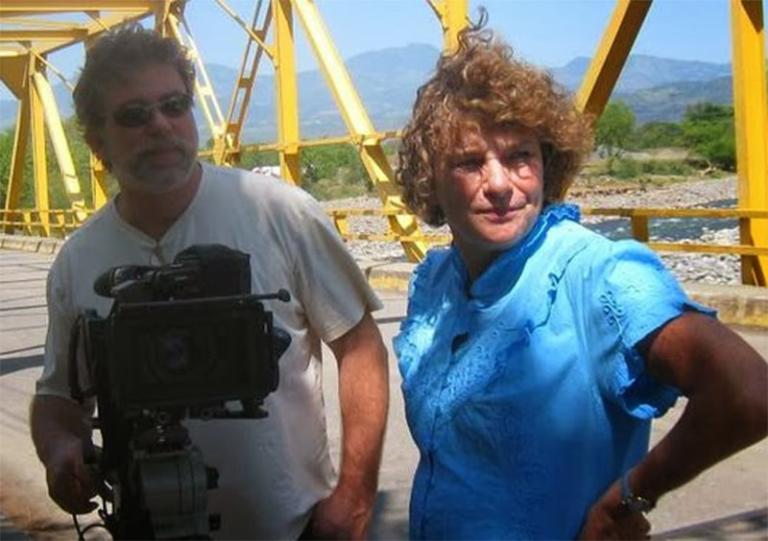
Emmy-award winning filmmaker Virginia Wolf will be on Kettering’s campus to participate in a discussion about her film “A Bridge Apart” which will air on Wednesday, January 28 at the McKinnon Theater in the Academic Building as part of the 13th Annual Global Issues Film Festival. Follow updates from the film festival by using the hashtag #KetteringGIFF.
Virginia Wolf, independent producer and founder of Virginia Wolf Productions, has worked for over 20 years on a wide variety of local, national and international productions which include: documentaries, televised town meetings, PSAs as well as variety of non-broadcast programs for non-profit organizations, capital campaigns, schools and universities. Wolf is a three time Emmy Award winner for her work as a producer and writer. Other awards include: Gold Eagle Awards, Peer Gold Award from TIVA/DC for writing, Grand Gold Award from CASE, and a Metropolitan Mass Media Award from American Association of University Women. Wolf takes pride in having a significant amount of her work be a means of raising awareness on issues that have social or humanitarian value. Topics include: migration/immigration, poverty, homeless children, affordable housing, community development, inner city neighborhood revitalization, special need children, center city schools and historical documentaries.
Wolf wrote and produced “A Bridge Apart” - a story on the epic migration of immigrants from Central America and Mexico to the United States from the point of view of the migrants themselves. Haunting photography, dramatic narration by Edward James Olmos and first hand interviews give witness to their harrowing journey. If a parent cannot find enough work to sustain a family, they are pushed by economic hardship and pulled to the U.S. by the promise of better life. The film also shows how simple economic development in small towns and villages can transform a desperate living situation into one that can sustain it's people - providing them options not to have to leave their home.
Kettering University: What were the challenges you encountered while filming?
Virginia Wolf: The most significant challenges in filming a documentary like A Bridge Apart are issues of safety and security -- not only for members of the crew, but for the people we were filming, their families and homes, the towns where they live, the migrant shelters, and other caregivers that were scattered along the journey. My worst fear was that someone would be harmed by a carelessness on our part. On the morning of our first day of filming in El Salvador, our agenda for the day was to shoot people/places related to issues around human trafficking. We had hired a former New York Times journalist who had lived in El Salvador for thirty plus years to be our guide and translator. When we told him where we wanted to go and what we wanted to do, he refused, stating that he did not want to end up with his decapitated head on top of a pole in the town plaza. Needless to say, we had to rearrange our priorities.
K: In what ways did the story you'd originally set out to tell evolve as you discovered the multi-faceted difficulties of life in Central America?
VW: On my very first trip to Central America back in 2007, I traveled for two weeks with just a handful of folks under the guidance of a global development organization, Catholic Relief Services, who had been working in Latin America for some fifty years. We traveled by car for hundreds of miles throughout Honduras, El Salvador and Nicaragua visiting remote villages and teeming center cities. By the end of the trip, it was quite clear to me that the story of the migrants’ journey north was one I wanted to tell. Eighteen months later, we were in Mexico embarking on our first week of filming. It was also becoming clearer to me that the issues relating to migration were very complex, and the question became how far could I realistically take this story. In many ways I was really letting the story guide me – with my major constraint being the budget and how successful I could be with seeking underwriters and grants.